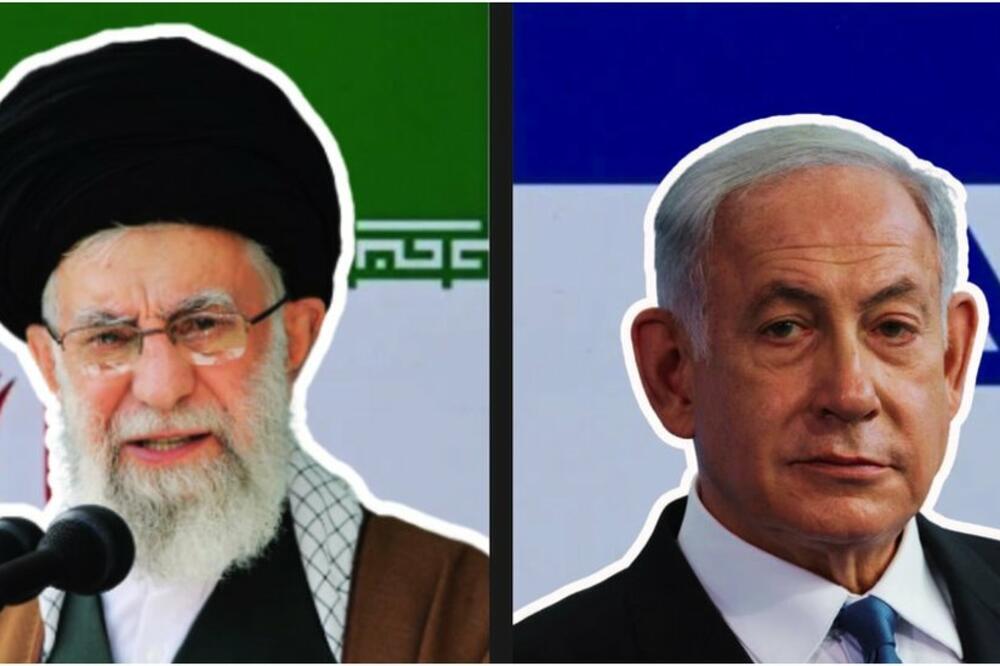Iran's missile and drone attack on Israel on the evening of Saturday, April 13, reawakened fears of a major escalation of the crisis in the Middle East.
Although there were no significant casualties in Israel, the barrage of more than 300 high-explosive missiles demonstrated Iran's ability to strike from afar.
This is a significant intensification of what has long been a proxy conflict, with attacks on Israel by Iran-linked groups as well as strikes on Iran-linked targets widely attributed to Israel.
Israel is already busy with the war in Gaza, and is also facing increasing cross-border fighting with the Lebanese group Hezbollah, so further escalation could pose a great risk for it.
Israeli Army Chief of Staff Lt. Col. Herzei Halevi stated that his country will to respond to Saturday's attack, but did not provide details.
On Friday, April 19, US military sources said that Israel had sent missiles and drones at Iran.
Tehran said that the attack was thwarted and that there was no damage.
- Israel-Iran Enmity: Everything You Need to Know
- How strong is the Iranian army
- What is Israel's Iron Dome
- Who governs Iran
Previously, Iran's Deputy Minister of Foreign Affairs, Ali Bagheri Khani, said on state television that a possible Israeli attack would be responded to within a few seconds, not hours.
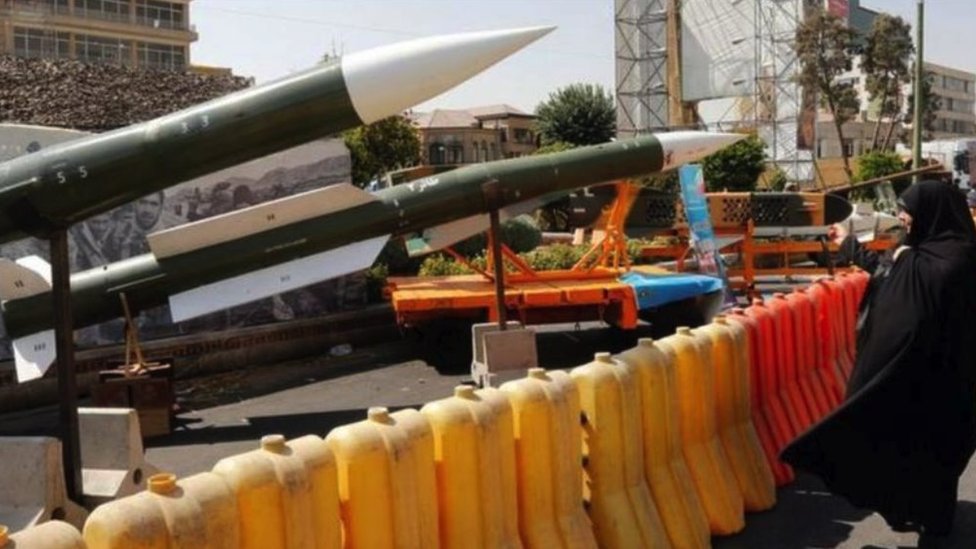
Which side is superior?
The BBC looked into the matter using the sources below, although each country could have a more significant force that it keeps secret.
The International Institute for Strategic Studies (IISS) compares the military strength of both countries using a variety of official and publicly available methods to make the best estimates possible.
Other organizations, such as the Stockholm International Peace Research Institute, also produce estimates, but accuracy can vary for countries that often do not publish official figures.
However, Nicholas Marsh, from the Peace Research Institute in Oslo (PRIO), says that the IISS is perceived as a standard for evaluating the military strength of the world's countries.
The IISS says Israel spends more on its defense budget than Iran, giving it significant leverage in any potential conflict.
According to the IICC, Iran's defense budget was about $7,4 billion in 2022 and 2023, while Israel's, at about $19 billion, was more than double that.
Israel's defense spending relative to Gross Domestic Product (a measure of its economic activity) is also twice that of Iran.
Technological advantage
IISS figures show that Israel has 340 combat-ready military aircraft, giving it an edge in precision airstrikes.
Among its fighters are the long-range F-15, F-35 - high-tech "stealth" planes that can evade radar - and fast attack helicopters.
The IISS estimates that Iran has around 320 combat-ready aircraft.
Its fighters date back to the 4s, and include the F-5, F-14 and F-1986 (the latter being the aircraft made famous by the XNUMX film Top Gun).
But Nicholas Marsh from PRIO says that it is not known how many of these old planes can even fly, because spare parts are extremely difficult to come by.
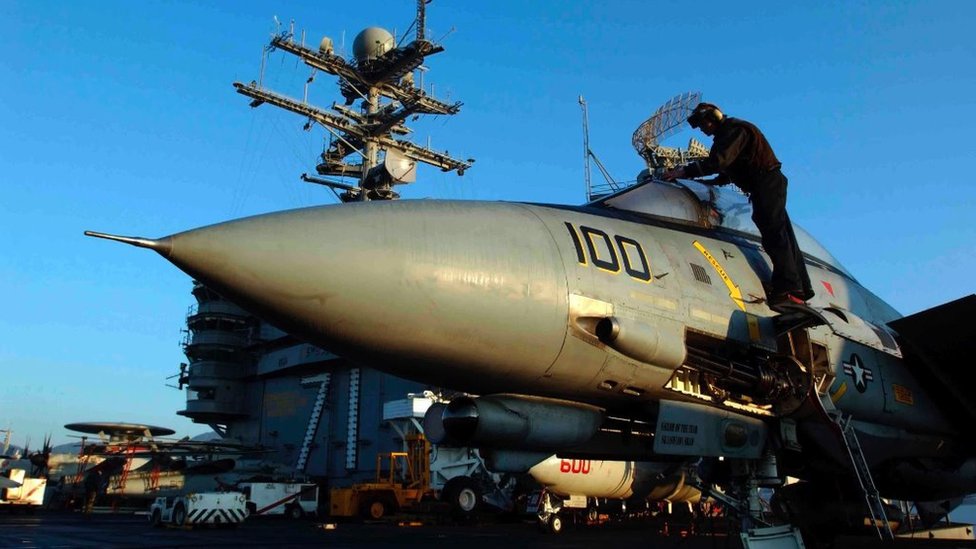
Iron Dome and Arrow
The backbone of Israel's defense is its Iron Dome and Arrow systems.
Missile engineer Uzi Rubin is the founder of the Israeli Missile Defense Organization at the Ministry of Defense of this country.
Now a senior researcher at the Jerusalem Institute for Strategy and Security, he told the BBC how "safe" he felt when he saw that Iron Dome and international allies had destroyed almost all the missiles and drones fired by Iran at Israel on Saturday.
"I felt very satisfied and very happy... This sisztem is specialized in the fight against targets. It is a defense against short-range missiles. There is nothing like it in any other system."
Israel's Iron Dome missile defense system helped destroy more than 300 missiles and drones fired by Iran over the weekend
How far is Iran from Israel?
Israel is more than 2.100 kilometers away from Iran.
His missiles are the main way he can hit this earth, says Tim Ripley, editor defense aya, for the BBC.
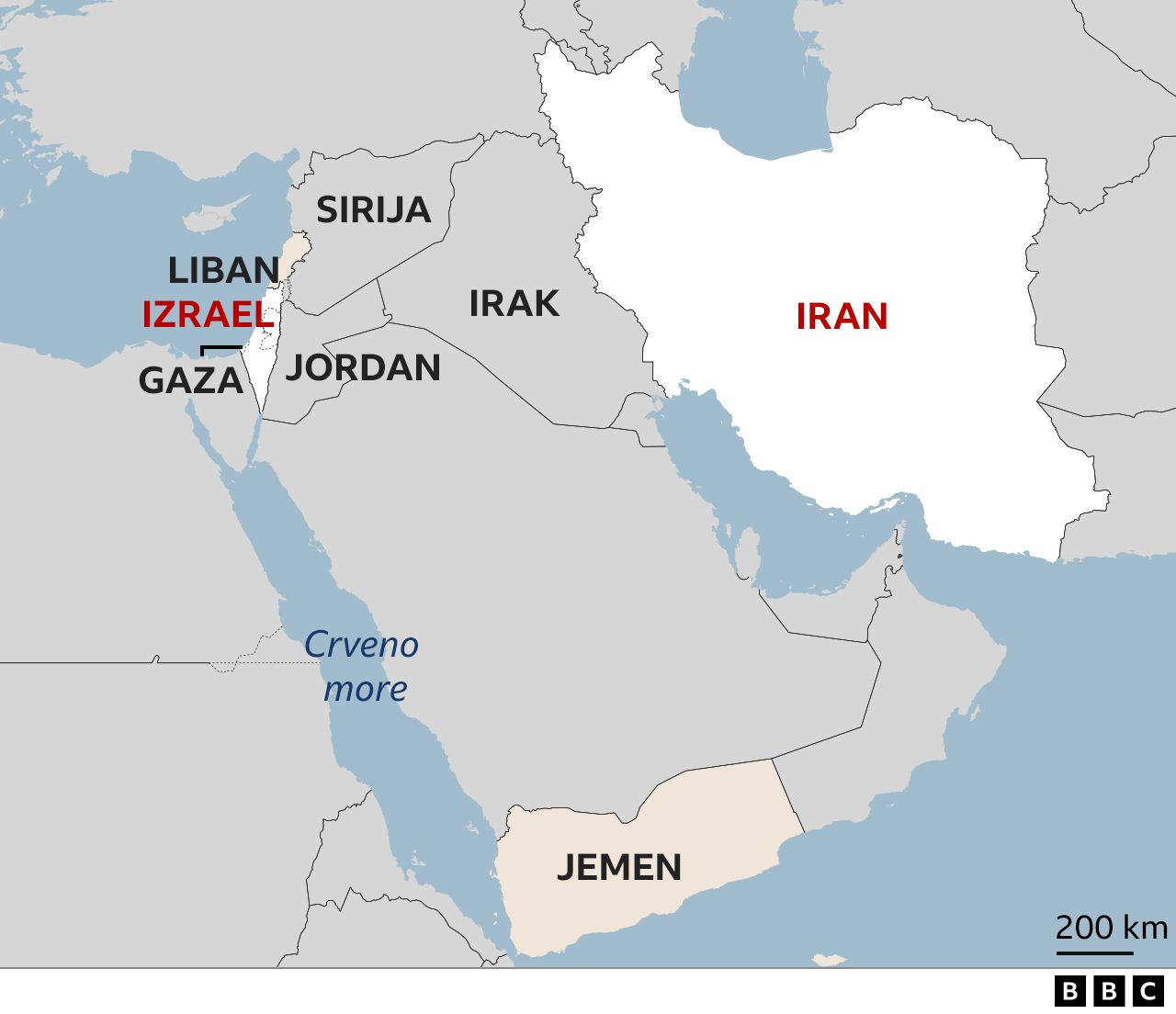
Iran's missile program is considered the largest and most diverse in the Middle East.
In 2022, General Kenneth McKenzie of the US Central Command said that Iran has "more than 3.000" ballistic missiles.
Prema to the CSIS missile defense project, Israel also exports missiles to several countries.
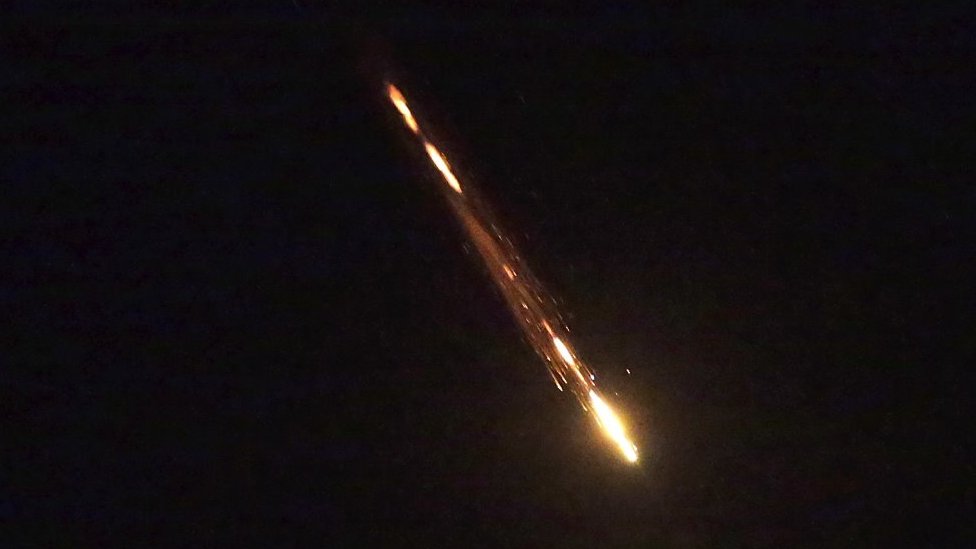
Iranian missiles and drones
Iran has been conducting extensive work on its own missile systems and drones since its war with neighboring Iraq between 1980 and 1988.
It has developed short- and long-range missiles and drones, many of which were recently fired at Israel.
Analysts who studied the missiles that the Houthis fired at Saudi Arabia concluded that they were made in Iran.
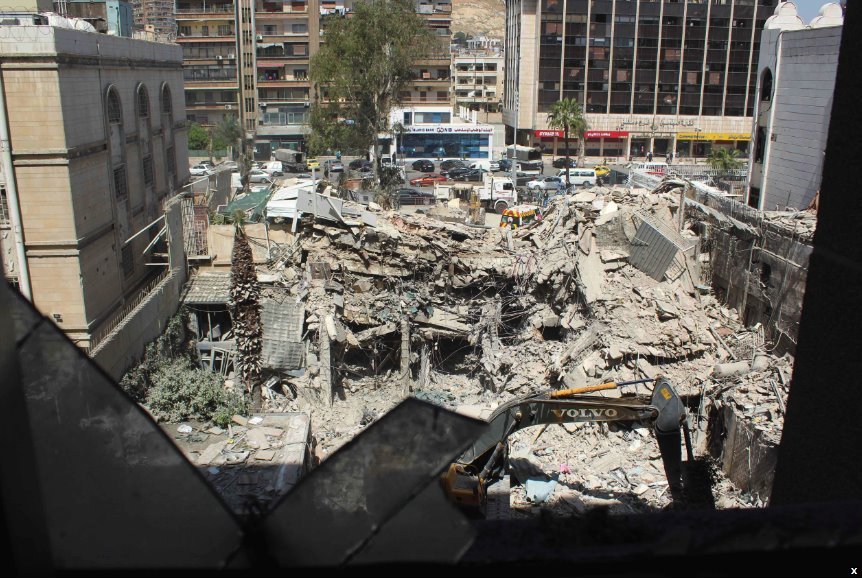
"Punishment" via ranged attacks
Defense Eye's Tim Ripley says Israel is highly unlikely to engage in a ground war with Iran: “Israel's big advantage is its air power and its guided weapons. That's why he has the potential to launch airstrikes against key targets in Iran."
Ripley says Israel is most likely to kill officials and destroy oil installations from the air.
"At the heart of it all is the desire to 'punish'... Israel's military and political leaders use that word all the time.
"It's part of their philosophy, that they have to inflict pain so that their adversary in the future will think twice before confronting Israel."

In the past, airstrikes have killed high-ranking Iranian military and civilian figures, including the destruction of the Iranian consulate in the Syrian capital on April 1, which prompted Iran to launch this attack.
Israel has not claimed responsibility for that or for a number of other attacks targeting prominent Iranian officials.
But he didn't even deny it.
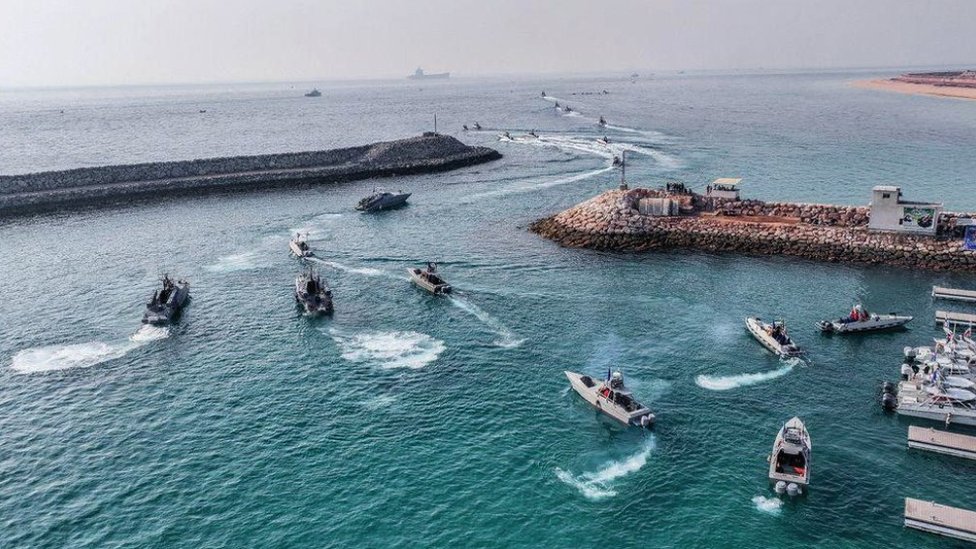
Naval forces
Iran's aging navy has about 220 ships, while Israel's has 60, according to IISS reports.
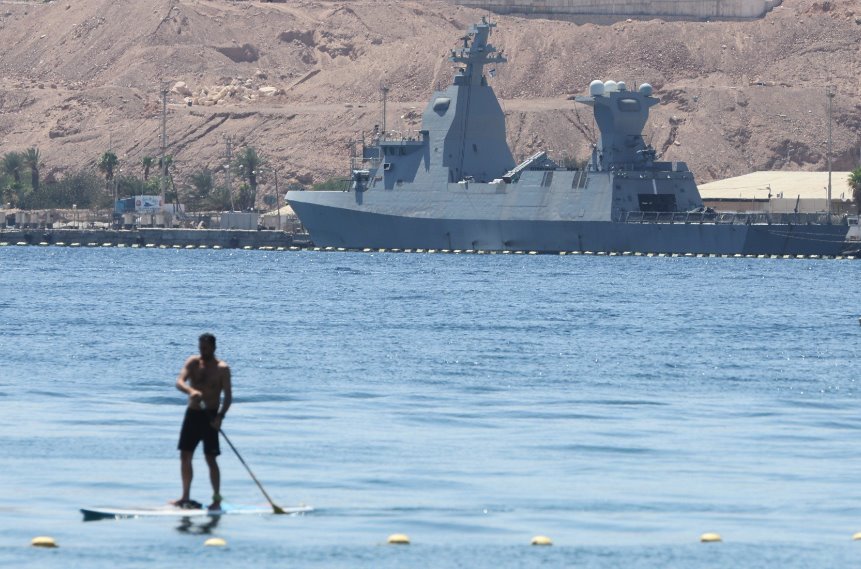
Cyber-attacks
Israel has more to lose in cyber attacks than Iran.
Iran's defense system is less technologically advanced than Israel's, so an electronic attack on the Israeli military can achieve much more.
The Israeli government's National Cyber Directorate says: “The intensity of cyber-attacks is higher than it has ever been, at least three times higher, with attacks in every Israeli sector. Cooperation between Iran and Hezbollah (a Lebanese paramilitary and political organization) intensified during the war."
He announced that between the attack on October 7 and the end of 2023, 3.380 cyber-attacks were carried out.
The head of Iran's Civil Defense, Major General Gholamreza Jalali, said that Iran has thwarted nearly 200 cyber-attacks in the month before the upcoming parliamentary elections.
In December, Iran's oil minister, Javad Ovji, said a cyber attack had caused disruptions at gas stations across the country.
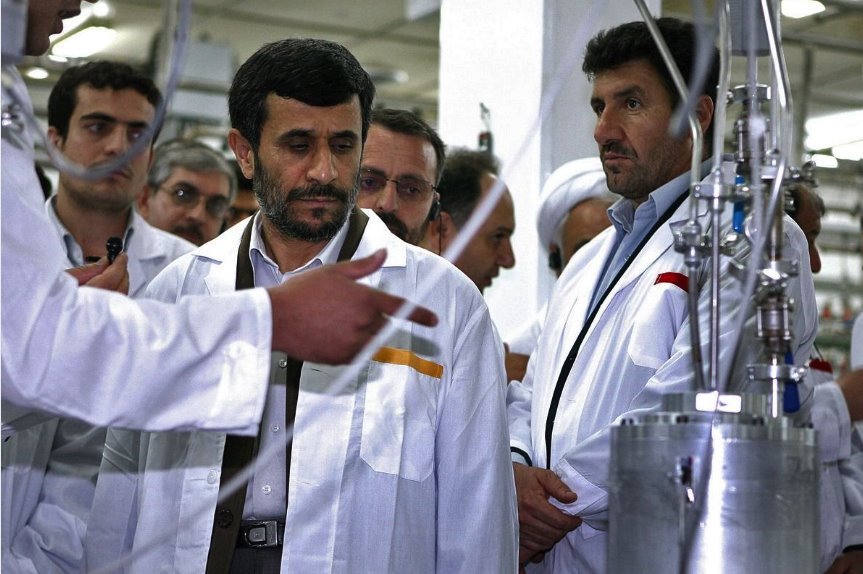
Nuclear threat
Israel is believed to have its own nuclear weapons, but it insists on an official policy of deliberate ambiguity about it.
Iran is not believed to have nuclear weapons and, despite accusations to the contrary, it denies that it is trying to use its own civilian nuclear program to become a nuclear-armed state.
Geography and demography
Iran is a much larger country than Israel and its population (almost 89 million) is almost ten times that of Israel (almost 10 million).
It also has about six times as many active troops as Israel.
Iran has 600.000 active troops, while Israel has 170.000, according to the IISS.
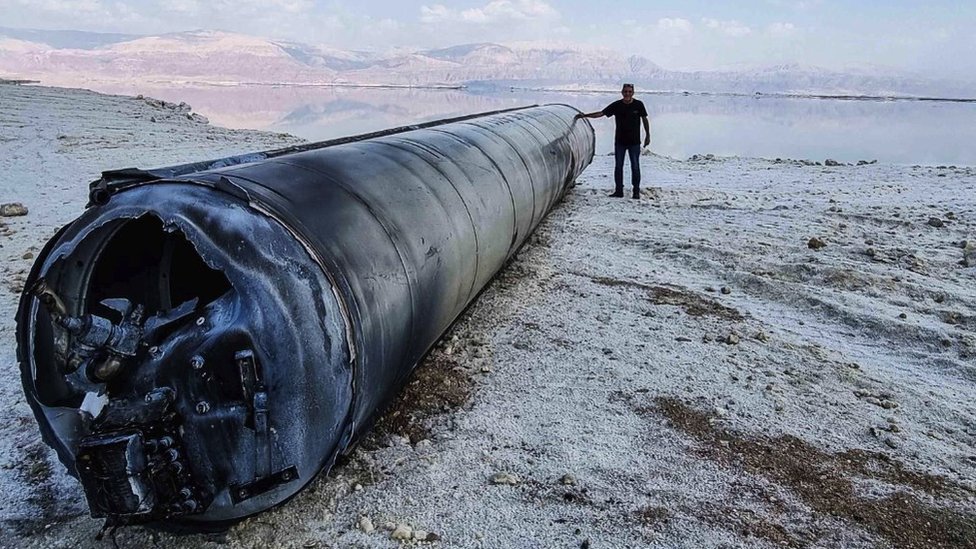
How could Israel respond?
Dr. Eric Rondsky, a Middle East researcher at Tel Aviv University, claims that Israel practically took responsibility for the failure when it declared a state of emergency during the Iranian attack.
Pro-Iranian extremists from neighboring countries regularly carry out attacks on Israeli interests and can equally become targets.
Jeremy Binney, a Middle East defense expert at Jane's, believes Israel is unlikely to respond immediately: "They potentially have a wide range of options if they really want to retaliate, such as bombing sites in Lebanon or Syria."
- Why Iran attacked Israel
- Israel attacked Iran, US sources claim, Tehran denies
- Iran's attack on Israel: Who wins and who loses
Bini doubts that there will be a conventional all-out war.
“The army will not fight, the navy will not fight, they (Iran and Israel) are far apart.
"We have a situation where both sides have the ability to strike at long range against the air defenses of the other side. We saw one side of that on Saturday and Sunday, with Iran's long-range strike capability against the Israeli defense."
He says that Israel would have to violate the airspace of sovereign states such as Syria, Jordan and Iraq.
Israel, however, has an experienced secret service that can carry out covert operations inside Iran.
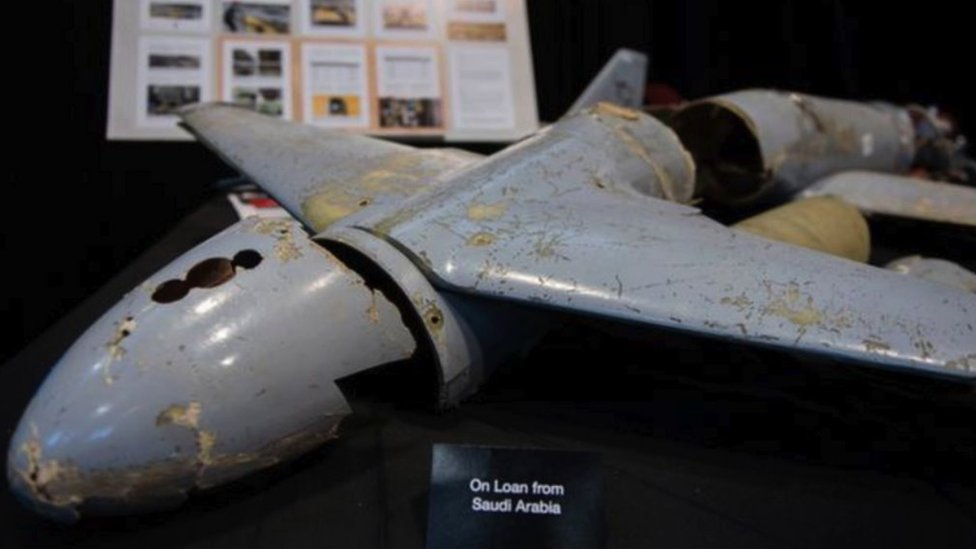
"Iran Map"
Middle East expert Tariq Suleiman tells the BBC in Urdu that he believes there is no possibility of this war escalating further.
But he warns that there are pro-war elements in Israel's parliament and cabinet who want war, putting pressure on the Israeli prime minister to do something.
"Whenever Netanyahu becomes politically vulnerable, he immediately plays the Iranian card."
A poll conducted by Israel's Hebrew University found that nearly three-quarters of the Israeli public opposes a retaliatory attack on Iran if such an act would undermine Israel's security alliance with its allies.
In a statement from the University, the survey was conducted on April 14 and 15 via the Internet and by telephone among a sample of 1.466 men and women who represented Israeli adults, both Jewish and Arab.
What is the "proxy war" between Israel and Iran?
Although Israel and Iran have not waged an official war to date, both countries have already been in an unofficial conflict.
Important Iranian figures were killed in other countries in attacks widely attributed to Israel, even in Iran itself, while Iran attacked Israel through proxies.
The militant and political group Hezbollah is waging Iran's biggest proxy war against Israel from Lebanon.
Iran does not deny that it supports Hezbollah.
- What is Hezbollah, a movement from Lebanon
- What is Hamas?
- What are the armed groups in Gaza and how many are there?
- Yemen: Who are the Houthis and why are they attacking ships?
His support for Hamas in Gaza is very much like that.
Hamas launched an attack on Israel on October 7, and has been firing rockets from the Gaza Strip into Israeli territory for decades.
Israel and Western powers believe that Iran is sending weapons, ammunition and training to Hamas.

The Houthis in Yemen they are widely seen as another Iranian middlemen.
Saudi Arabia claims that the missiles fired at it by the Houthis were made in Iran.
Pro-Iranian groups wield considerable power in Iraq and Syria, too.
Iran supports the Syrian government and is said to be using Syrian territory to attack Israel.
Additional reporting: Ahmen Kavadza, Karla Roche, Reza Saveti and Chris Partridge
Follow us on Facebook, Twitter, Instagram, YouTube i Viber. If you have a topic proposal for us, contact us at bbcnasrpskom@bbc.co.uk
Bonus video:



